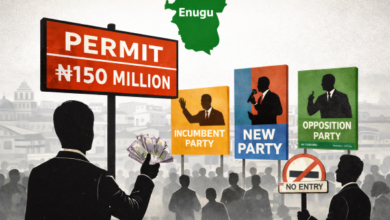Traffic law enforcers can do better — Motorists
 Vehicle Inspection Officers (VIOs), Federal Road Safety Corps (FRSC) and the Police are tasked with enforcement of traffic rules and regulations on roads across the country.
Vehicle Inspection Officers (VIOs), Federal Road Safety Corps (FRSC) and the Police are tasked with enforcement of traffic rules and regulations on roads across the country.
The Lagos State Traffic Management Authority (LASTMA) joins the bodies to carry out such functions in the state.
It is not uncommon to find personnel of such bodies littered along the roads, trying to make life easier for motorists and commuters in general, day by day.
In places like Lagos, where traffic on the roads can be hellish, encounters between law enforcers and drivers of vehicles sometimes leave sour tales.
Road users in other parts of the country also have different stories to tell, some sweet, others sour.
Stakeholders across board, however, want the authorities to harp on civility in the dealings of the law enforcers with road users, as is done in advanced countries.
Mr Sunday Imoh, a supervisor at Excellence Hotel, Ogba, narrated one of his experiences, in which he believed the law enforcers could have done better.
He said that on a certain day, a combined team of traffic regulatory agencies, including the Police, accosted him on his way home from work.
Imoh said the officers forcibly took over his steering without telling him his offence and drove the vehicle away.
He said that he was too tired and took a commercial vehicle back home.
According to him, it took three days of search in various units of both the Federal Government and Lagos State Government agencies to locate the vehicle.
He said that he was accused of “wrong overtaking”.
Another motorist, a mechanic in Isolo who simply identified himself as Abbey,, also said some traffic law enforcers could do with more ciivility.
He alleged that in some cases, traffic law enforcers collude with street urchins popularly called Area Boys, to apprehend innocent motorists.
Narrating his ordeal, Abbey said he was test running a customer’s vehicle and some Area Boys jumped on the road, blocking him for no reason before some traffic law enforcers joined to take over the steering.
He said he had to negotiate his release and parted with some money to avoid being taken to the station.
“May God not allow us to be unfortunate to encounter the bad officers on the road,” he said.
The Lagos police command spokesman, SP Benjamin Hundeyin, told NAN that an average of five complaints are recieved weekly, alleging violent conduct in enforcement of traffic rules and regulations by some officers.
He said the Complaint Response Unit of the command takes care of such cases.
Hundeyin said as punishment, some officers are reprimanded by demotion if their misconduct is found to be serious.
He said that some were stationed at barracks, stations, or headquarters where they would have limited dealings with the public.
He said that the Police does not condone misconduct by its personnel.
The Lagos Sector Commander, FRSC,, Corps Commander Olusegun Ogungbemide, on his part, said that officers involved in misconduct while on duty stood the risk of being dismissed from service.
The Corps Commander said there were several punishments put in place by the management to checkmate the excesses of their personnel.
Ogungbemide said that they varied, depending on the nature of the offences committed by an officer.
He, however, said that reports of such violent behaviour among his men was minimal.
This, he said, was because of stringent measures in place to guide the activities of officers while on duty.
READ ALSO:https://brandeconomy.com.ng/mitigating-emerging-risks-through-compulsory-insurance/
He said the officers of FRSC had good orientation regarding their job ethics
According to him, this has given them a positive disposition while dealing with the members of the public.
The FRSC boss, however, said that despite the efforts put in place by the management, there could still be one or two bad eggs in the system.
He said FRSC disciplinary procedures had been put in place to take care of all forms of misconduct..
Ogungbemide said that they always allowed members of the public to make their submissions and these were investigated.
LASTMA, on its part, so bad said it could only get better, if and when members of the public share their experiences.
It said these also include positive ones, while they provide evidence where applicable of perceived misdemeanours.
(NAN)












